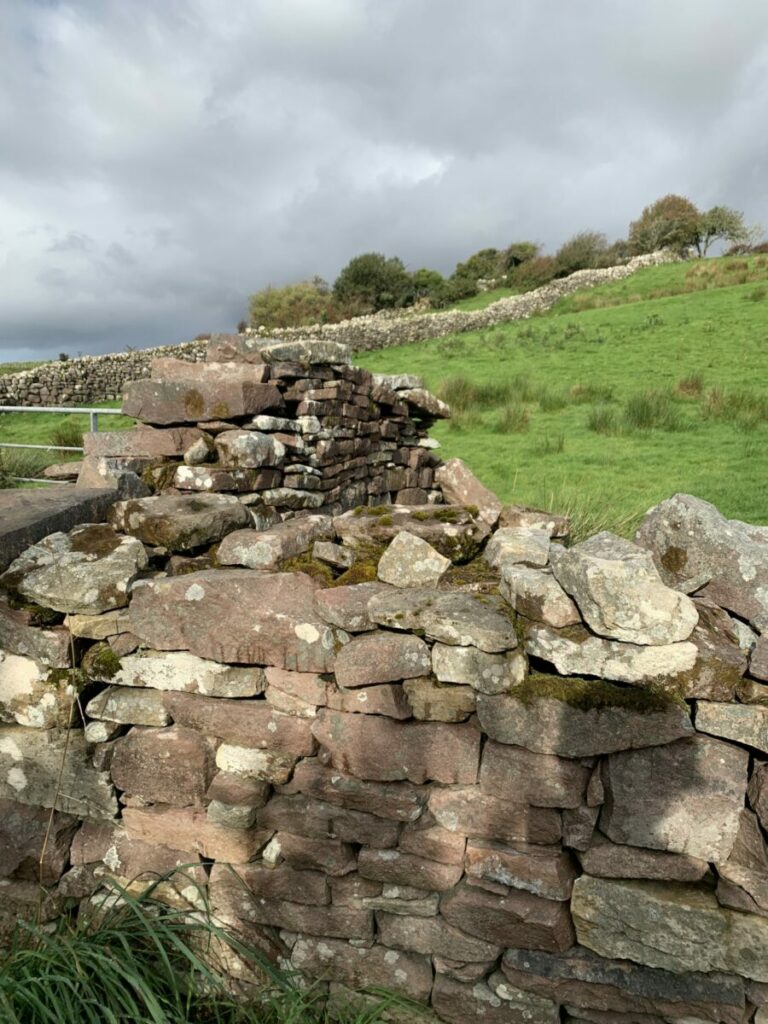
By Sue Mangan
She thinks these dark days of autumn rain
are as beautiful as days can be. . .
The desolate, deserted trees,
The faded earth, the heavy sky,
The beauties she so truly sees.
(“My November Guest,” by Robert Frost)
I traveled to Ireland during the end of blackberry season. The sun cast purple shadows on fields of blooming heather. Blackberries full to bursting still hung on the vines, while the sun warmed the lanes.
Every morning I took a long walk. My route was always the same: up and over the hills of Derrylaughan. Each day, the same pair of donkeys peered over a blue fence at me. Lazy mares would wander over the meadows as I passed.
Even the border collie who enjoyed lounging in the rare September sun no longer barked at my presence, but rather raised his head briefly in acknowledgement. I was a benign visitor who, much like the curious animals in the fields, had nothing else to do but raise my nose to the fresh scent of sweet grass and wildflowers.
Our cousins thought that I must have been bored with the same sights, the same walk. I explained that the path may be the same, but the scene plays out differently with every hour, with every turn of light. Uncle Paddy agreed, “Sure, no truer words were spoken. Each day is new.” As in life, some mornings dawn violet, while others spark red.
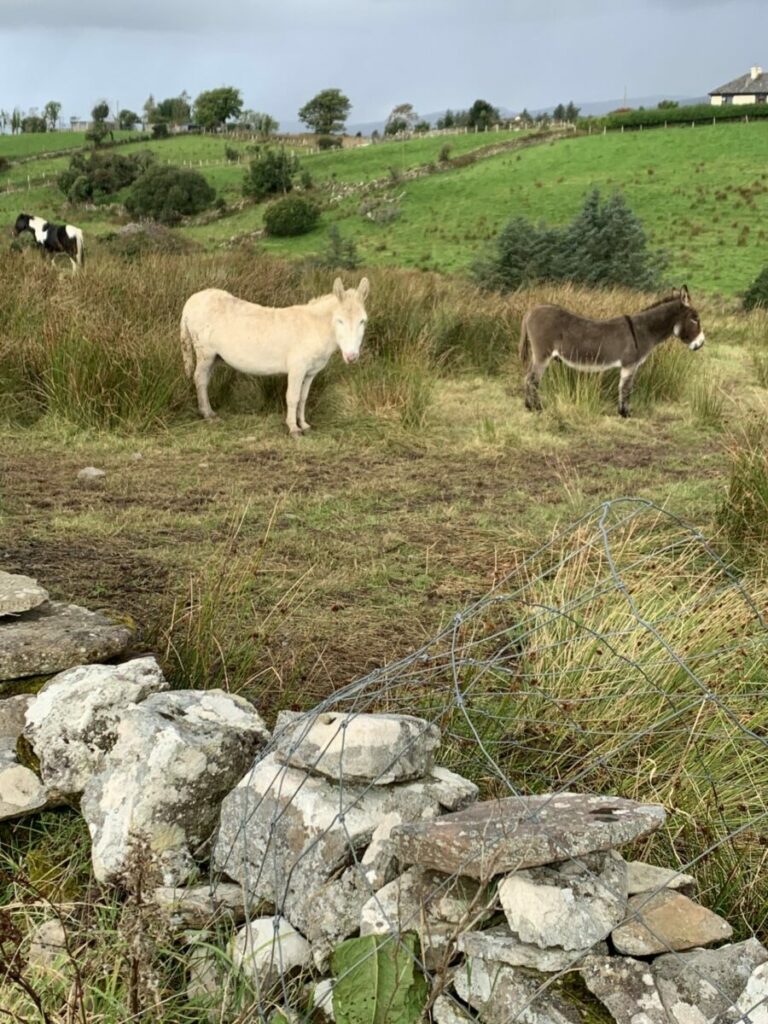
Thirty years ago, the lanes of Derrylaughan were flanked by towering hedges. On days when my husband helped his uncle with the sheep on the mountainsides, his young cousin would accompany me on long walks. This young girl knew the natural variations in the hedges, the names of the farms, and the animals that we would encounter.
I soaked in her knowledge. As a teacher, I knew that adults could learn much from the insights of a seven-year-old.
One day, I thought to set out on my journey alone. The little girl was worried for my safety: “Are ye’ sure that you know the way?” “If you get lost, no one will know where to find you.”
Why did I feel like a character from a fairytale? Surely, there were no wolves hiding behind the dense hedgerows of ivy and spent rhododendron. I assured my young field guide that I would be fine. I knew the loop; it was the same path that she and I traveled every day.
As I set out in my yellow raincoat, I raised my nose to the mineral scent of approaching rain. Mist began to descend from the hedges, and one towering bush of holly began to look like the next. Ivy and holly, blackberry canes and tangled fuchsia rose like Jack’s never-ending beanstalk. I was lost.
Rather than stay on the path that led me off course, I took to the hills and discovered a new route. As the magpie flies over bog and meadow, I eventually made my way back home.
Over the course of thirty years and ten visits to Ireland, the mountains and strands, fields and farms, have come to feel like home. I recently read that familiarity is a sure sign of home, no matter where your life’s journey brings you.
My father is now into his 91st year. At times he has stepped on his life’s path with sure-footed familiarity. On other occasions, he has been forced to take the road less traveled. As Robert Frost writes, “And that has made all the difference.”
Upon their retirement, my father and mother took a chance and moved from Chicago to rural Indiana. After my mother died, we began to visit my Dad at his home on Crooked Lake nearly every weekend. I have looked out across the lake during seasons of snow and sun, rain and shadows.
On pristine autumn mornings, the flaxen lake grass and blazing orange foliage are mirrored in the blue of the lake. Sand Hill Cranes nest in this shelter. I never tire of watching them settle into their evening meal of insects and fish.
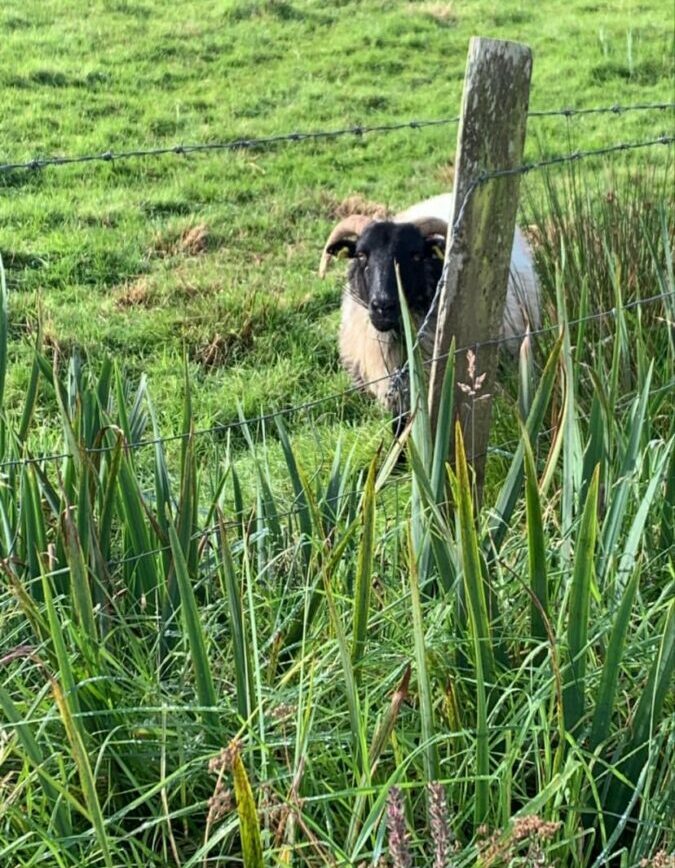
A sycamore tree grows at the edge of Crooked Lake. Its back is humped like a wise old man who has toiled from dawn until dusk. This autumn I watched the straw-colored leaves fall into the lake and settle among the clusters of yellowing lily pads. At the sound of the crane’s trumpeting call, I looked away from my relaxed perch at the edge of the old dock.
When my vision once again settled on the water below my dangling feet, I saw two upturned sycamore leaves floating in a sailboat race. The wind did not rattle the lake, but rather gently set the sycamore boats asail, each on a different path. At times, it seems that our journey implies a race to the finish; but perhaps, we are simply invited to navigate our course mindfully, with introspection and appreciation.
After I bid adieu to blackberry season in Ireland and returned home, I took a walk with my spaniel at dawn. The morning mist did not resonate with the essence of turf fires; the pond in our local park reeked of warm detritus rather than the sharp, salty scent of sea air; but it was my home, and I was glad to be on this path once again.
Our walk took us through black walnut and oak woods. The dawning world was still dark as Lucy and I made our final turn around the pond, and then, all that was familiar became new once again.
The sun broke through a patch of old apple trees that probably had been growing on the edge of that pond for a hundred years. I had never noticed the red of the apples against the small hillside. Deer munched at the heavy fruit. A young buck with soft, burgeoning antlers looked at me peaceably.
When Lucy and I rounded the bend, we both raised our noses to the soft scent of sunrise. We inhaled the promise of the new day and looked forward to the possibilities that lie on our path home.
Find this and other Blowin’ In columns here!

*Susan holds a Master’s Degree in English from John Carroll University and a Master’s Degree in Education from Baldwin-Wallace University. She may be contacted at [email protected]



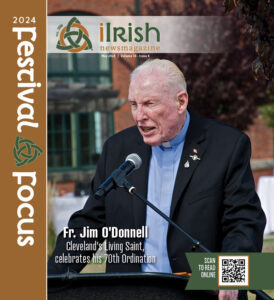
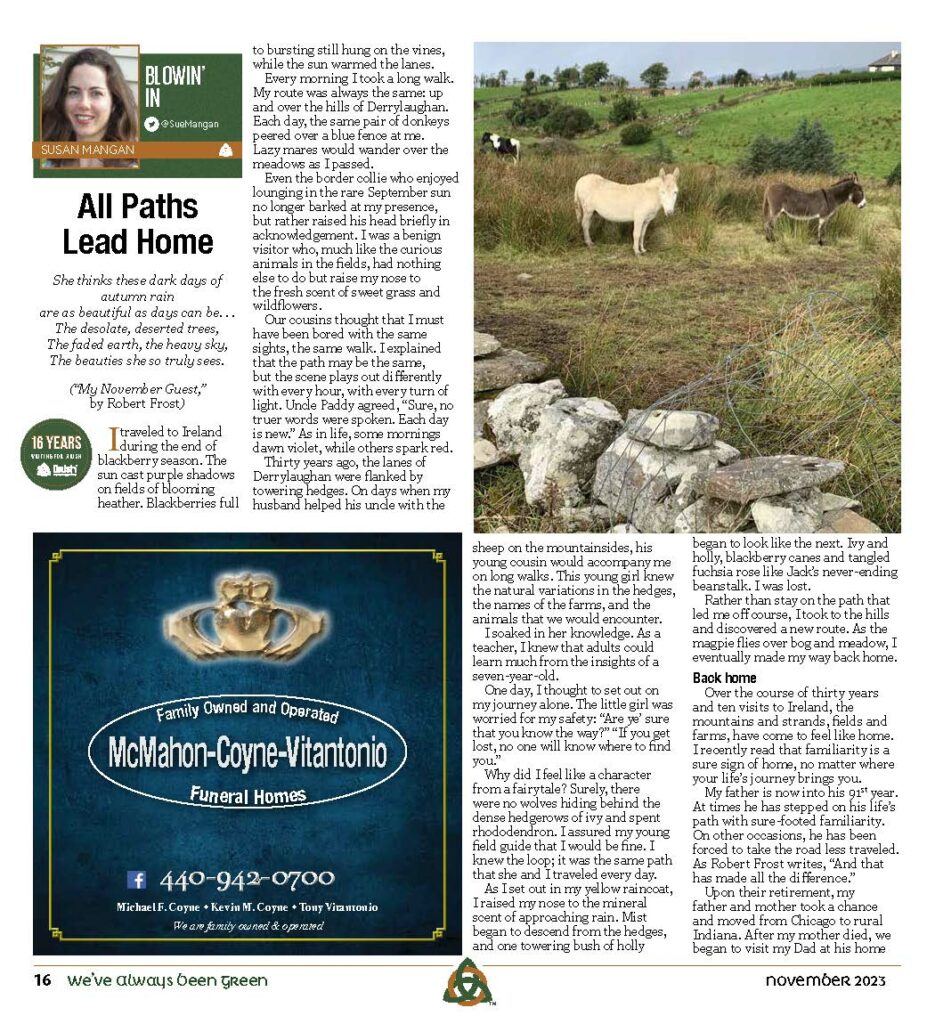
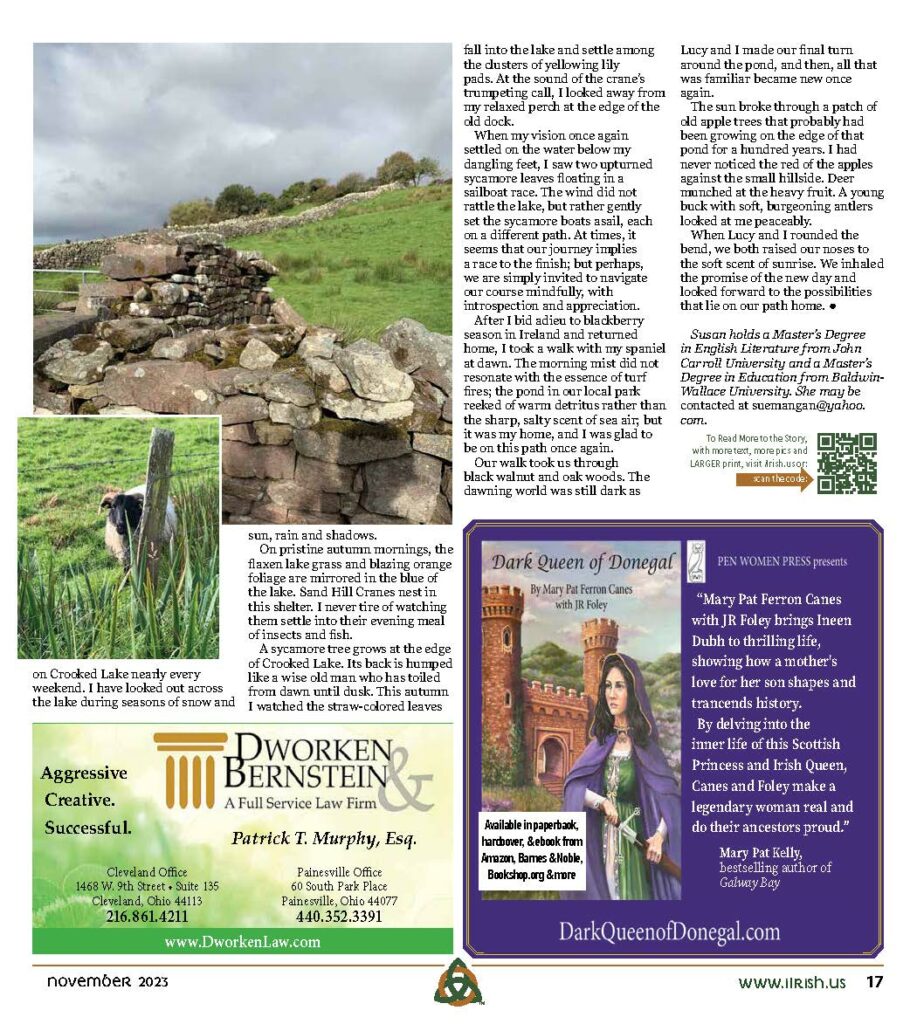

Monthly newsmagazine serving people of Irish descent from Cleveland to Clearwater. We cover the movers, shakers & music makers each and every month.
Since our 2006 inception, iIrish has donated more than $376,000 to local and national charities.
GET UPDATES ON THE SERIOUS & THE SHENANIGANS!